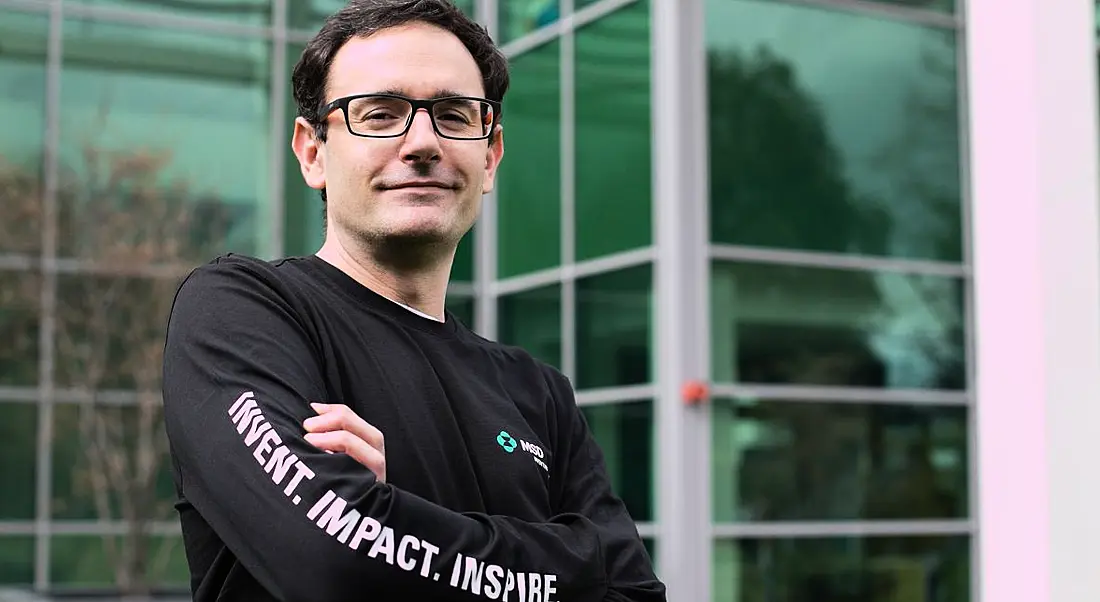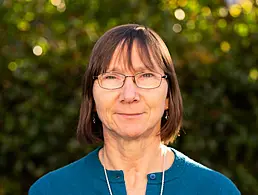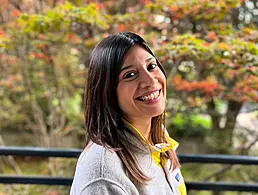Learn about how John Harrington from MSD took an exciting and indirect route into a career involving innovative medicine.
When you’re at the beginning of your career, it can be difficult to envision how to propel yourself from an entry-level position to a top role in your field.
How do you even determine what field is right for you? How do you figure out what company you want to work for? This, coupled with the precariousness that comes with being in the nascent stages of your career, can make the whole experience pretty nerve-racking.
It can be a good exercise to look at successful, established people and see how varied the routes to success truly are. It’ll help reinforce the reality that there’s no ‘right’ way to achieve your goals.
To this end, we asked John Harrington, associate director of engineering utilities at MSD Ireland, about how he came to be in his role and how the company supported him along the way.
What first stirred your interest in a career in pharma?
I was inspired by the talented people I was working alongside, and I also had a feeling that Ireland was on the cusp of a large-scale multi-corporation infrastructural drive that would continue into the future – that was in 1999!
In my very first role, I was given the task of designing a solution to stop a type of fork truck being driven into expensive production equipment. We installed a series of lasers that disabled the trucks when they got too close. Fun and interesting! That got me really interested in continuing to work in the area.
I knew that working in the pharmaceutical sector would bring both challenges and growth – and, with this, opportunities.
What education and/or other jobs led you to the role you now have?
I took a somewhat indirect route to working in engineering. I started studying arts (with a heavy scientific/data slant – honours-level statistics and environmental modelling) and then moved on to chemical engineering. Since then, I have continued to focus on continuous professional development in engineering and management fields.
Before taking on my role in MSD Ireland, I had the pleasure of working with many of the largest pharmaceutical companies in Ireland, including Eli Lilly, Pfizer and Johnson & Johnson.
Yet I think it was my dad who influenced me most. I was fortunate to have a small workshop at home where my brother, sister and I would play at building things, from wooden toys through to radios and basic sensors. My dad was an engineering director in RTÉ and I really wanted to follow in his footsteps in engineering. I think he’s happy with my progress to date!
What were the biggest surprises or challenges you encountered on your career path, and how did you deal with them?
The biggest surprises have been the vast array of opportunities a career in engineering provides, and the realisation that showing a willingness to listen, understand and offer solutions will open doors.
In the many fields of engineering, it’s all about solutions, whether that’s through designing something, documenting functionality or figuring out how equipment works. Being able to do this is a key talent that others need.
The biggest challenge for me was identifying my career path. I had no idea where I wanted to work for a few years until a friend of mine suggested MSD Ireland. Seeing the portfolio of life-saving products, I knew MSD would be the right fit.
Was there any one person who was particularly influential as your career developed?
There have been very many influencers in my career. My current manager in MSD Carlow, Marie Martin, is an inspirational leader. She has an amazing skillset, and continues to inspire me to develop and become a better engineer and a better manager.
Under her guidance, I have gone through promotions, numerous educational programmes and currently participate in global engineering forums representing MSD Carlow.
What do you enjoy about your job?
At MSD, our mantra is ‘Inventing for Life’ and, in my role, I get to do that every day.
Most people are aware that technology companies have creative labs where, if you dream it, you can try it, build it, test it and implement it.
What they might not be aware of is that pharmaceutical companies also give you the opportunity to do just that. In MSD Ireland, we come up with innovations and new ideas for the benefit of patients around the world, ensuring sick people get the medicines they need.
What aspects of your personality do you feel make you suited to this job?
I’m a detailed-oriented person and I think that’s served me well in this field. I also really enjoy working with people and communicating with them.
In engineering, you have to speak two languages: technical and common sense. Communicating about problems and solutions clearly and succinctly is another key skill to develop for many reasons, not least so that you can come to the front when required and tell people about all the lovely hard work you’ve been doing.
I also really do want to help people learn and develop, and I have a close relationship with the local college, Carlow IT, where I lecture on occasion and act as an examiner. I enjoy being asked questions and showing people how stuff works.
How did your current company support you on your career path, if at all?
MSD is amazing at supporting development; I’ve never worked anywhere with the same opportunities and support. Managers help with the development paths to direct you but, like all things in life, you can only get out of it what you put in – the company is very much a meritocracy.
I’ve completed lots of beneficial continuous professional development and I’ve attended college, all supported by MSD Ireland.
What advice would you give to those considering a career in this area, or just starting out in one?
If you enjoy challenges, the engineering world is for you. Engineering careers are rewarding, fun, diverse and engrossing.
When you’re starting out, be flexible, embrace challenges and don’t be afraid of change. Also, work on those communication skills – be patient, listen and engage!




